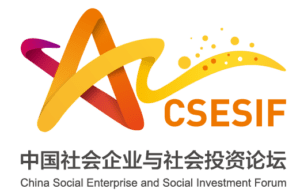AVPN is proud to announce its new strategic partnership with the China Social Enterprise and Social Investment Forum (CSESIF). This partnership will help to augment the resources and activities to support and develop the social investment space in China.
CSESIF was jointly initiated in 2014 by Mr. Xu Yongguang, President of Narada Foundation and Mr. Zheng Weining, President of Canyou Group as a membership based network dedicated to the development of the social enterprise and social investment sector in China.
The forum has 17 founding members including Dunhe Foundation, Jack Ma Foundation, More Love Foundation, China Foundation for Poverty Alleviation, Leping Social Entrepreneur Foundation, and Yifang Foundation.
CSESIF’s main goals are to facilitate cross-border communication and collaboration; promote the growth of social enterprises and the social investment industry, and build up a favorable external environment for the industry.
As part of this partnership, AVPN and CSESIF will mutually offer each other’s members a 20% membership discount; will support each other’s conference; will share resources and collaborate in various joint projects. To enjoy this benefit, please state the AVPN/CSESIF relationship during your application.
CSESIF will be having its inaugural annual conference on June 18th-19th in Shenzhen, China. The conference is expected to be attended by more than 500 participants including foundations, corporates, investors, social entrepreneurs, non-profits and media.
AVPN members will be able to enjoy 30% off the ticket prices at RMB909 (standard price of RMB1,299)! Please use the following link to purchase conference tickets.



















